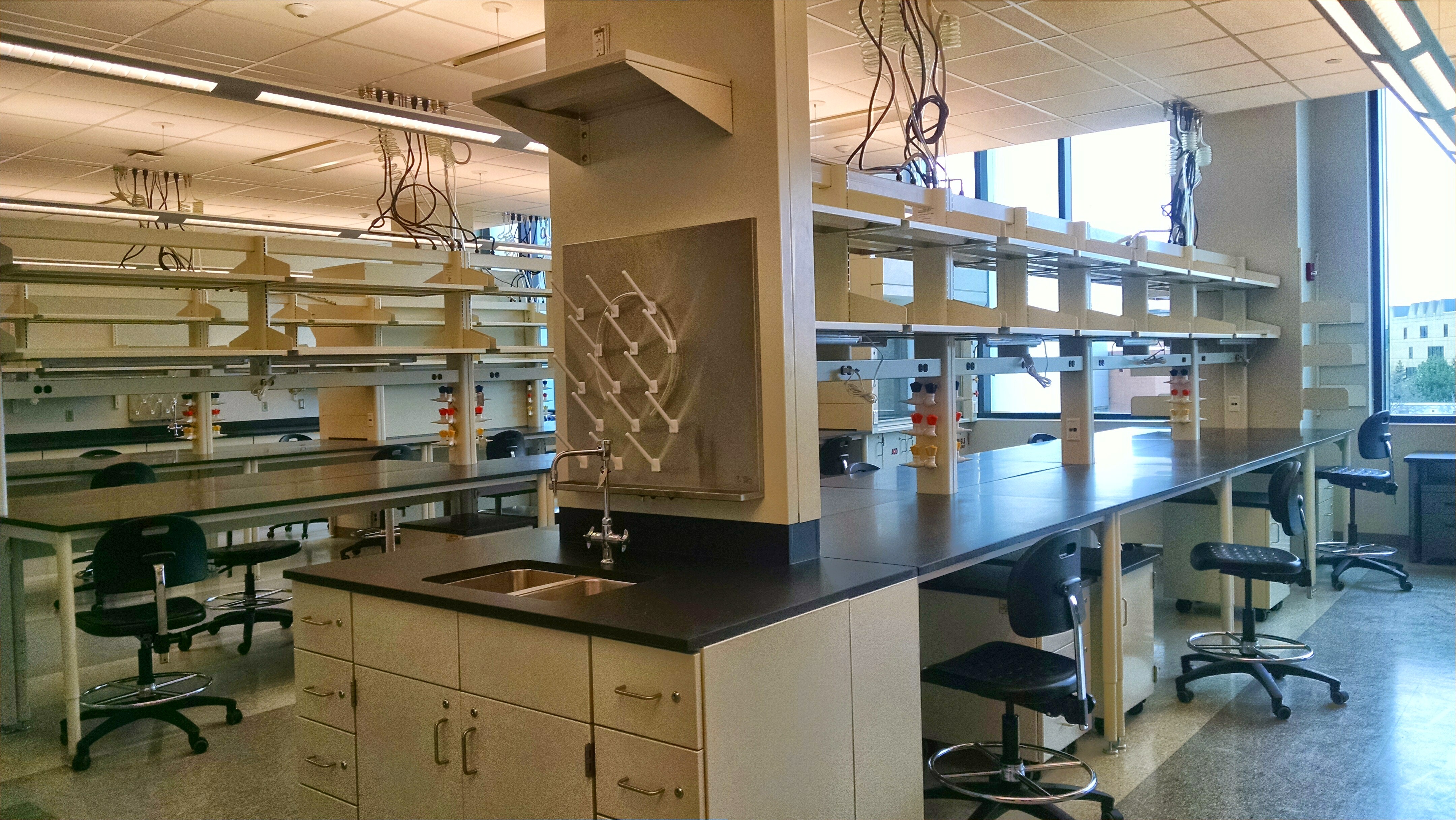
The custom-designed laboratories of the new Neuroscience and Engineering Collaboration (NEC) building provide an ideal setting to further advance the Department of Psychology's programs of study in behavioral neuroscience. The NEC design fosters interaction with other scientists working on related problems, as well as interaction across disciplines. This promises to yield innovative research and collaboration by tapping into the collective intellect of top neuroscientists, clinicians, and student researchers.
A primary emphasis of modern neuroscience research is how adverse early life experiences—such as, abuse, neglect, or exposure to drugs or environmental toxins—may lead to the development of psychological and behavioral dysfunction later life. The faculty in the Department of Psychology’s Behavioral Neuroscience group are actively researching the connections between these early adverse experiences and later outcomes. For example, adrenal steroids are often used to treat asthma in childhood; yet it is known that these same compounds can impair cognitive ability. A team led by Dr. Dragana Claflin has found that whether the steroids disrupt, or actually improve, the learning ability of infant rats depends on the method of delivery and dose of the drugs administered. These studies offer the promise of tailoring drug treatments in ways that prevent impairment of cognitive development in childhood. Infants experiencing neglect or abuse frequently develop major depression in adolescence or adulthood. How the early trauma translates into the later mental disorder is the focus of much current study. Experiments by Drs. Michael Hennessy, Patricia Schiml, and their student researchers suggest that the infantile stress affects the immune system, producing a lasting increase in inflammatory processes that then affects the brain to promote the onset of depression. Whether anti-inflammatory drugs can block the effects of early stress is a topic of ongoing research.

Critical early life events can even occur before birth. In Dr. Gale Kleven's laboratory, researchers use state-of-the-art imaging techniques, including 3D/4D ultrasound, to study how prenatal exposure to drugs affects the movement patterns of guinea pigs and other rodents in the womb. Determining when and how the drugs first affect the fetus provides valuable insight as to how the drugs redirect bio-behavioral development—effects that can continue to have consequences throughout the lifespan. This work has important implications for both diagnosis and understanding the origins of developmental disabilities such as cerebral palsy and autism. The Behavioral Neuroscience group, including 19 student researchers, moved into their new laboratories in the NEC building May 2015.

